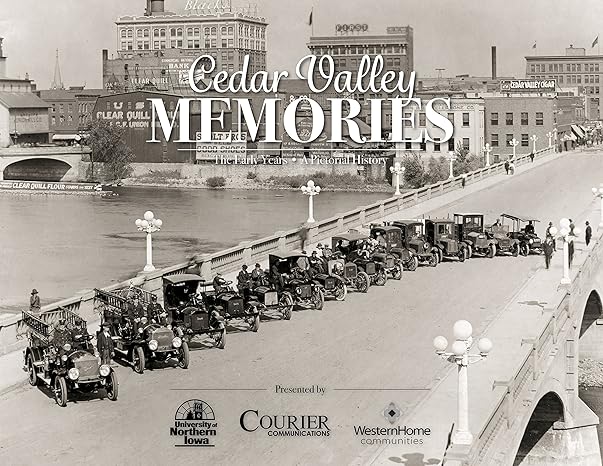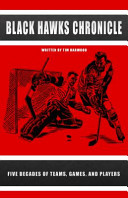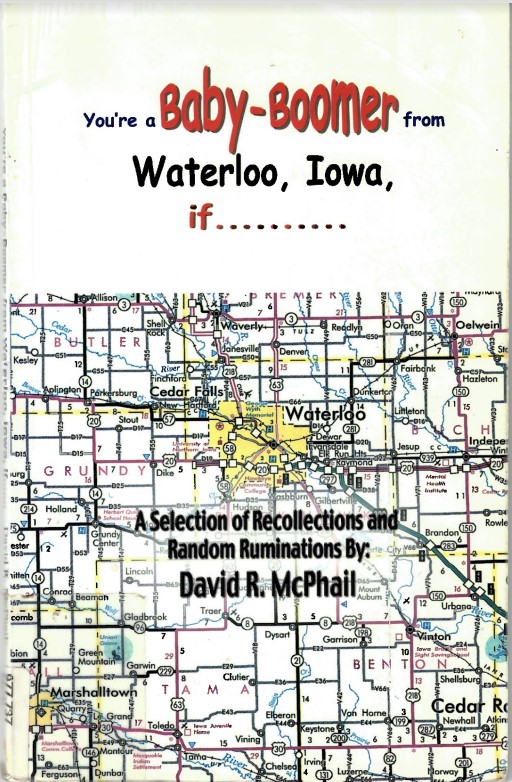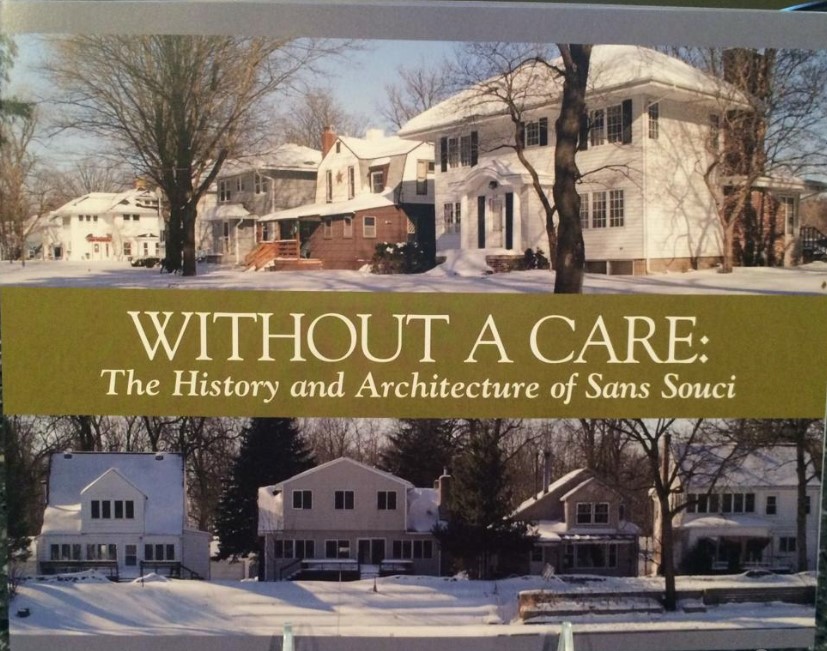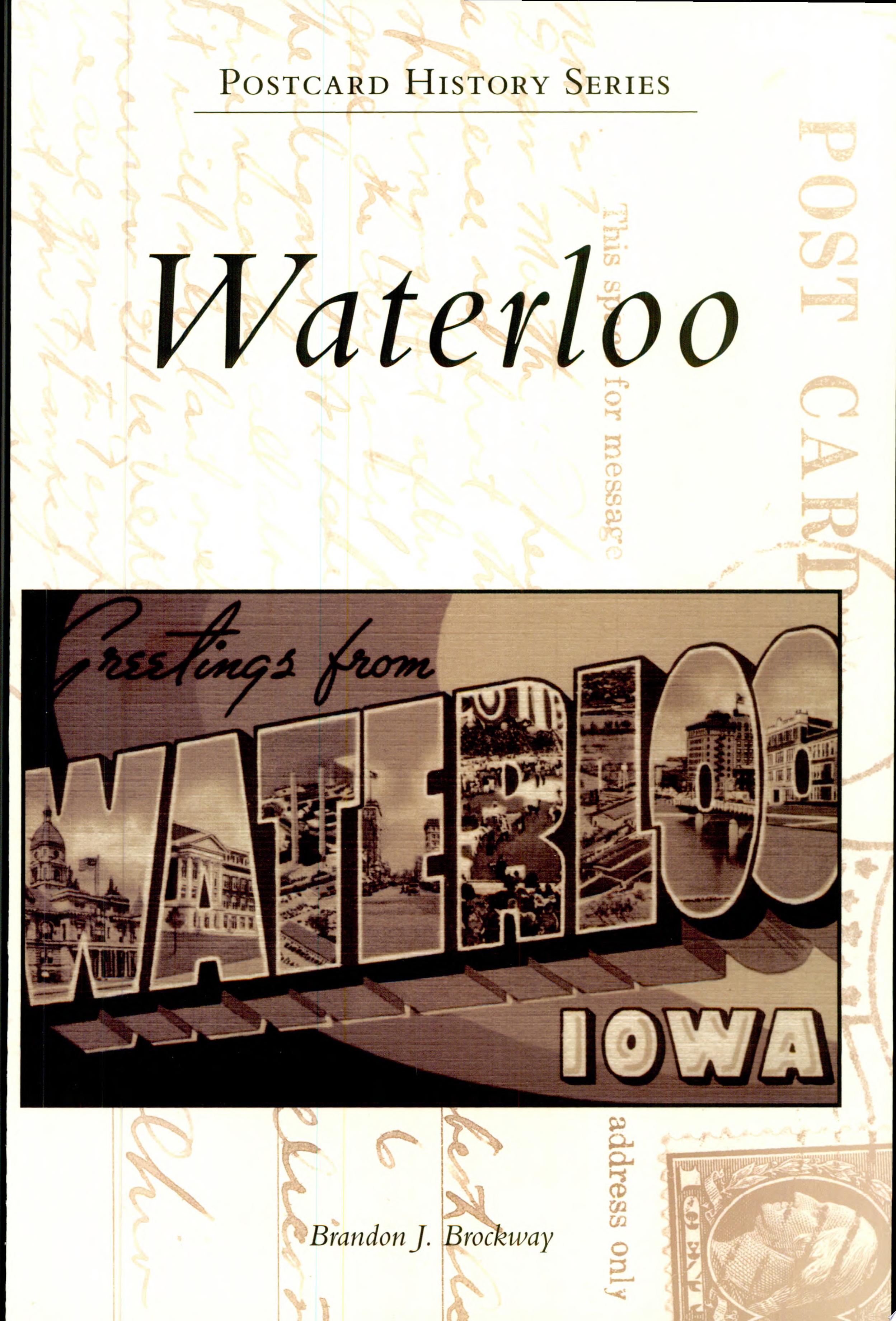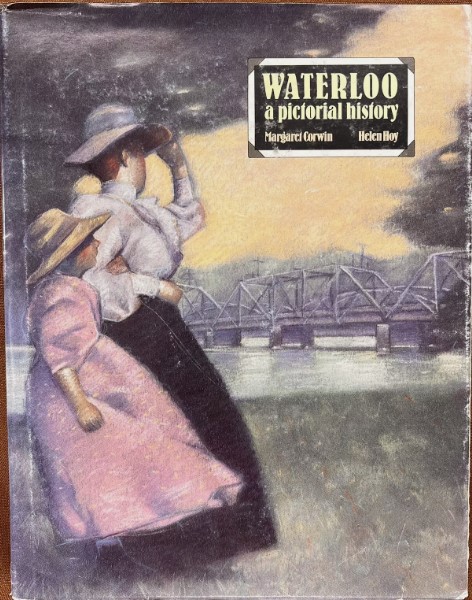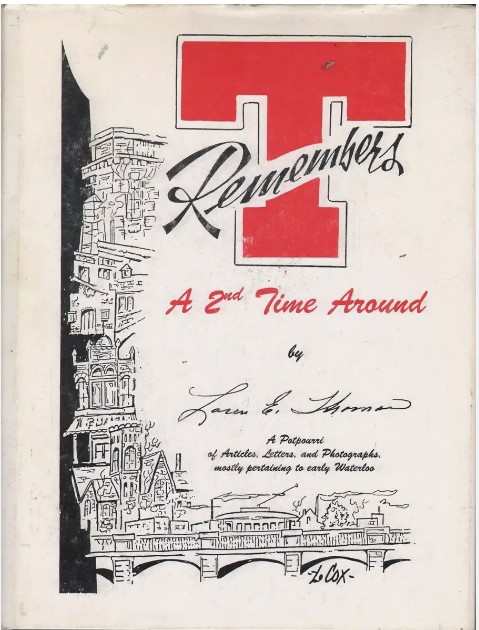List
Waterloo Fire Rescue, Waterloo, Iowa
This book takes a look at the history of the Fire Departmnent, in pictures and words. It shows how a vital part of any community, its firefighters, have continually put themselves on the front line to protect the citizens of Waterloo.
Cedar Valley Memories: The Early Years
The Courier
The Courier is proud to announce a beautiful, hardcover historic retrospective of Cedar Valley. This collector’s book features the memories of Cedar Valley from the late 1800s through 1939 in historic photographs. In working with The Grout Museum District and readers, The Courier is proud to bring this heirloom-quality coffee-table book to the community. This hardcover book truly captures the rich heritage of Cedar Valley.
Black Hawks Chronicle
Tim Harwood
Hockey sprang to life in Waterloo, Iowa when the Black Hawks and the United States Hockey League arrived in 1962. Immediate success on the ice allowed the franchise to put down deep roots. Paul Johnson, Jim Coyle, Bill Dobbyn, and a full cast led the Hawks to five consecutive championships in the 1960's. Their early accomplishments built a tradition which helped the sport through many leaner seasons. In more recent years, players like NHL All-Star Jason Blake, U.S. Olympian Joe Pavelski, and Stanley Cup winner Mark Eaton have developed their skills in northeast Iowa.Black Hawks Chronicle recounts the accomplishments of nearly 50 seasons of hockey in the Cedar Valley. Big wins and tough losses are remembered here. Read about the senior players who brought the game with them and the juniors who thrilled Waterloo fans before going on to star in college and professional hockey. For fans who have followed the team from the beginning, relive the exciting moments, and for those who have only recently discovered the Black Hawks, find out how hockey became the Cedar Valley's proudest tradition.
Walnut Neighborhood (reference book)
Annette Swann, ed.
An illustrated oral history compiled by the Walnut Neighborhood Association of some of the residents living in the four-square block area of East Waterloo. It is a personal account of what brought them to the neighborhood, what the neighborhood was like, and the events of their experiences.
You're a Baby-Boomer from Waterloo, Iowa, If.....
David R. McPhail
Are you a baby-boomer from Waterloo, Iowa? Test your memories of Waterloo from 1952-1982. How much will you remember?
The Story of Golf in Waterloo, Iowa (Reference book)
Leonard J. Katoski
A year-by-year account of the public and private courses, hundreds of amateur and professional golfers, and behind the scenes politics in a fascinating first-person style of the only golfer who lived through it all. Two volumes.
Bringin' Home the Bacon (Reference book)
Rebecca Conrad
 "Bringin' Home the Bacon" is a 20-page, magazine-style book with numerous color and black-and-white photographs and narratives about the Rath meat packing plant, which operated along the banks of the Cedar River in Waterloo from 1891 through 1985.
"Bringin' Home the Bacon" is a 20-page, magazine-style book with numerous color and black-and-white photographs and narratives about the Rath meat packing plant, which operated along the banks of the Cedar River in Waterloo from 1891 through 1985.
The books explain how the city lured the business from Dubuque with land, tax breaks and investment capital as Waterloo was pushing to become Iowa's "factory city," and runs through a failed employee stock ownership initiative, which failed to save the company from eventual bankruptcy and liquidation in 1985.
The pages also detail the impact of Rath, which was once among the city's largest employers and was reportedly the largest multistory, single-unit meatpacking plant in the world, on labor relations and the meat packing industry.
Stars in Waterloo
Mike Chapman and Don Huff
Memories of national figures, movie actors, entertainers and sports legends who have visited Waterloo
We Band of Brothers
Jack R. Satterfield
In November, 1942, the five Sullivan brothers from Waterloo, Iowa, died when the USS Juneau was sunk in the South Pacific. Their deaths brought the reality of the war home to America. This is the story of the brothers, The Battle of Guadalcanal and the effect of the tragedy on the family, community, and nation.
Sunday Night Memories, vol. 1: 1950s-1960s (Reference book)
Bob Dixon & Elden Happel
A pictorial history of Waterloo, Iowa's dirt race track, the Tunis Speedway.
Waterloo 150
Waterloo/Cedar Falls Courier
150 people, places and events that mark a century of Waterloo history.
Without a Care: the History and Architecture of Sans Souci
Camilla Deiber
A historical overview of Sans Souci Island, its homes and residents. The island was inundated during the historic floods of June 2008. By October 2011 all the homes were demolished.
African Americans: Yesterday, today & tomorrow, the Waterloo experience (Reference book)
Jerry Komia Domatob
This book provides a historical perspective on African Americans in Waterloo. It traces the history of Waterloo African Americans from 1900-2000, focusing on leaders who contributed to society.
Waterloo
Brandon J. Brockway
Waterloo started out like many other towns: as a small pioneer village located along the banks of the Cedar River. It must have been a breathtaking sight--a beautiful river lined with red cedar trees, prairie grasses blowing in the breeze, and abundant wildlife. After winning the battle to become the county seat in 1855, Waterloo began to grow into the metropolis it is today. The popular slogan, "Waterloo Way Wins," has proven true over the years, and one can feel a sense of pride while looking at the images in this book.
Tractor Town: Waterloo's role in the developmentr of the farm tractor, from "Waterloo Boy" to John Deere, 1895-1954
Jan Olive Nash
This booklet spans nearly 60 years in the development of the modern agricultural tractor and its place in Waterloo's community history.
The Legion Team
Tim Harwood
For more than half a century, generations of hockey fans in northeast Iowa have given their allegiance to the Waterloo Black Hawks. Few realize that decades before the Black Hawks arrived, a long forgotten club captivated Waterloo during the late 1920's, playing in front of crowds even larger than those who come to the rink today and beating teams from Chicago, the Twin Cities, and Canada. Sponsored and administered by the Becker-Chapman American Legion Post, a contemporary newspaper report noted, "[Hockey's] popularity eclipses any other winter sport...the game took such a foothold that the city would be lost without its regular hockey matches now." The Legion Team; Forgotten Hockey in Waterloo, 1927-1930, seeks to revive the memory of this overlooked era, detailing every game the Becker-Chapman squad played during four winters. However, beyond the wins, losses, and game details, the athletes who came to the Cedar Valley for the opportunity to play, their opponents, and Waterloo of that era, come to life.
Waterloo, a Pictorial History
Margaret Corwin
Waterloo is a thriviing metropolitan area well-known for its productivity and renowned for its "army of workers." Within the pages of Waterloo: a Pictorial History, the city comes alive through photographs which serve as open windows to the past. These mini time capsules freeze the personalities, events and landmarks of preceding generations.
Waterloo Diamonds
Richard Panek
"Richard Panek spent nearly a year inside a peculiarly American enterprise in a peculiarly American setting - the minor league baseball franchise of a midwestern town. Through a powerful, lyrical, funny, and true account of the Diamonds' fight to survive in the struggling city of Waterloo, Iowa, this book explores the broad social and economic changes in America over the past decade and the past century." "For one crucial - and, as it turned out, climactic - year in Waterloo's long history with baseball, Richard Panek lived along the Diamonds and their fans, traveling to games throughout the midwest, attending town meetings where the team's fate was passionately debated, talking with players and politicians, coaches and team owners. As the young Diamonds players struggled on the field - some hoping to rise to the big leagues, others seeing their dreams vanish forever - a larger struggle emerged in Waterloo: a battle for the city's future, fought on the fading playgrounds of its past."
T Remembers
Loren E. Thomas
A potpourri of articles, letters, and photographs mostly pertaining to early Waterloo.

